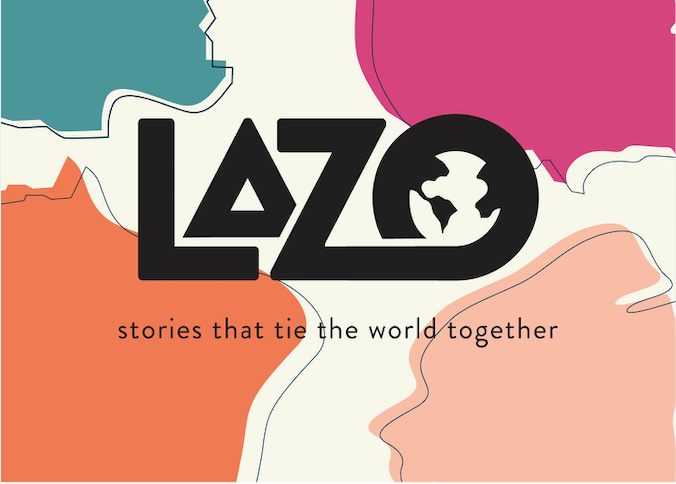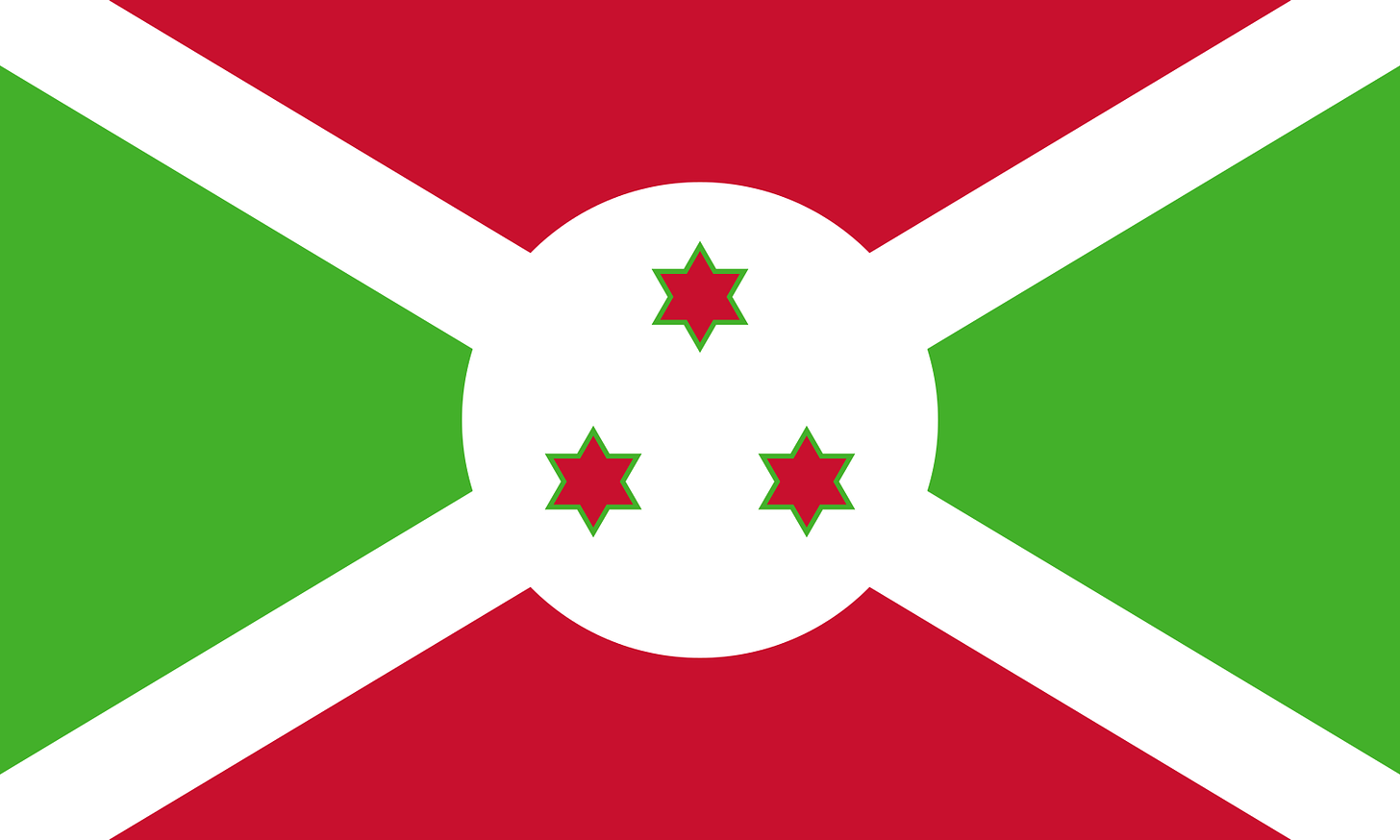#28 Burundi
Hi, all! We're back with the 195 project this week. But first, I just wanted to say that I spend a lot of time reading the news so I can share information in this newsletter from all over the world. But if there's anything you want to flag that I missed, news from a country where you live or that you cover or read about obsessively, or if there's a good piece of journalism you want to share, feel free to send it my way!
I love help and suggestions, and I cannot always find everything on my own, as hard as I try. Also, if you're working on a project and want me to share information about it, I'm open to that too. I know you're all working on exciting stuff.
Feel free to email me anytime at c.maza@protonmail.com. I will sometimes take a while to answer, but it's not because I'm uninterested. I'm just very busy (sorry, I, too, hate that word). But I still want to hear from you!
This week is about Burundi.
Welcome to the 195 series, where I take you on a mini-tour of every country (and maybe some places that want to be countries). Each week I'll feature a new location. Some you may have heard of, while others may be new to you. The point is to learn and nurture our curiosity about the wider world. Maybe you'll find a new artist or musician you like, too.
Here's the link to copy and paste into your browser to support this project: https://lazo-letters.ghost.io/#/portal/signup. You can sign up for $2 a month or $22 a year.
Country Info:
Population: Roughly 12.55 million.
Current government: The end of the civil war in 2005 didn't put an end to Burundi's political problems. According to the organization Freedom House,
Burundi has been in political and economic crisis since 2015. Democratic gains made after the 12-year civil war ended in 2005 have been undone by a shift toward authoritarian politics and violent repression against anyone perceived to oppose the ruling party, the National Council for the Defense of Democracy–Forces for the Defense of Democracy.
Some background: Like Rwanda, the East African country has two major ethnic groups, the Hutus and the Tutsis, who fought each other during the civil war. But the two groups lived reasonably well together in pre-colonial Burundi.
The country was under German colonial rule in the late 19th and early 20th centuries and under Belgian rule after World War I.
The last elections were in 2020. The U.S. State Department described them like this:
Voters elected President Evariste Ndayishimiye, members of the National Assembly (lower house), and commune councils. The government allowed the main opposition party to participate and campaign. The elections resulted in a peaceful transfer of power but were deeply flawed with widespread reports of human rights abuses perpetrated primarily against members of the main opposition party. Numerous irregularities undermined the credibility of the process in which international observers did not participate.
Religion: Well over half of the population is Roman Catholic.
Standout artist: I'm giving a shoutout to the 257Arts, which claims to be the first permanent art gallery in Burundi's largest city, Bujumbura, that focuses on selling and curating fine art. You can find all kinds of information on their Instagram page about exhibitions and artists.
Standout film: Kamenge: Northern Quarters, a documentary film about the country's civil war, which lasted from 1993 until 2005, and efforts to rebuild the country after it. You can watch it on Amazon Prime.
A surprising thing: Burundians are big fans of brewing banana beer, which is made from fermented mashed bananas. Check out this Africa News report:
Story of the week: Former Burundian Prime Minister, Alain-Guillaume Bunyoni, was arrested on April 21st. The organization Amnesty International said the arrest is "an opportunity for the Burundian authorities to ensure accountability for serious human rights violations. Alain-Guillaume Bunyoni, in his previous role as minister of public security, had oversight responsibility for the police, who violently repressed real and perceived political opponents."
What I'm writing:
• Members of Congress are questioning whether the leak of hundreds of highly classified documents on a social media platform for video-game enthusiasts has compromised Ukraine’s much-anticipated spring offensive. This story is unlocked and free to read.
• I spoke to Faisal Saeed Al Mutar, an Iraqi American human-rights activist and writer, about growing up in Baghdad during the U.S. invasion of Iraq, fighting extremism, and his journey from refugee to U.S. citizen.
• A data breach on the U.S. Immigration and Customs Enforcement website exposed the personal information of thousands of asylum seekers, who now say they could be at increased risk of persecution by foreign governments and criminal groups.
What I'm reading:
Almost two years ago I reported that Boris Johnson had tried to meet the Queen when he had Covid symptoms. I was told by No10 it was “completely untrue”.
Yet @AnthonySeldon and @RaymondNewell_ confirm in their new book on the former PM that it had, in fact, happened. pic.twitter.com/my8cYD88xd— Pippa Crerar (@PippaCrerar) April 23, 2023
• Armenians have appealed for international help – above all from Russia – after Azerbaijan set up a checkpoint on the only road connecting Armenia with the Armenian-populated territory of Nagorno-Karabakh, EurasiaNet reports.
• A group of leading Russian lawyers asked the country's Constitutional Court to declare unconstitutional a law banning criticism of the armed forces, the New York Times reports.
• Ukrainian military forces have established positions on the eastern side of the Dnieper River, which could be an early sign of Kyiv’s long-awaited spring counteroffensive, the Associated Press reports.
• Ukraine’s military intelligence agency developed plans to conduct covert attacks on Russian forces in Syria using secret Kurdish help, according to a leaked top-secret U.S. intelligence document. The Washington Post has the story.
• The European Union will send a civilian mission to Moldova to help the country combat foreign threats following reports that Russia is working to destabilize Moldova.
• Russia's Wagner mercenary group was involved in alleged Kremlin-led efforts to foment civil unrest in Moldova in the hope of destabilizing the pro-Western government, leaked U.S. military documents seen by Radio Free Europe's Russian Service indicate.
• Moldova’s autonomous region Gagauzia goes to elections today for a new governor, or Bashkan, with eight candidates in the race, most of them with pro-Russian views, Balkan Insight reports.
• The paramilitary organization Wagner Group aims to establish a “confederation” of anti-Western states in Africa, according to leaked intelligence reports. Despite U.S. efforts to disrupt Wagner, it has gained strategic footholds in at least eight African countries. The Washington Post has the story.
• The paramilitary organization Wagner Group offered weapons to the paramilitary fighting the army for control of Sudan, the New York Times reports.
• The Financial Times has a deep dive into Wagner's leader Yevgeny Prigozhin's family and how they have evaded sanctions.
• Hungary’s Prime Minister Viktor Orbán cast doubt on Ukraine’s eventual accession into NATO, despite NATO Secretary General Jens Stoltenberg saying that all “allies have agreed that Ukraine will become a NATO member.” The BBC has the story.
• The grain deal that got Ukrainian exports moving and eased a global food crisis is risking support for Ukraine among struggling European farmers, the New York Times reports. One Romanian farmer said that prices were driven so low by cheap food from Ukraine that selling would mean earning less than he paid to produce his crops. Over the past week, Romania, Poland, Hungary, Slovakia, and Bulgaria imposed tight restrictions on importing Ukrainian grain. Only Romania stopped short of an outright ban.
Side note from my reporting: A Polish opposition politician mentioned this issue during meetings in Washington this week, telling me and a small group of other reporters, "Our farmers are angry...but they don't blame Ukraine." He also mentioned that Poland could use Germany's ports to export more grain, but the ruling party won't pick up the phone and call Berlin.
• The youth wing of Germany’s far-right party, Alternative für Deutschland, was classified as a “certified right-wing extremist endeavor,” allowing the highest level of scrutiny by the German domestic intelligence service, Deutsche Welle reports.
• The High Representative to Bosnia used his substantial “Bonn powers” to ensure government formation in the country’s Federation entity, imposing new changes to its constitution, Balkan Insight reports. This was Christian Schmidt’s second intervention in the constitution in less than seven months.
• France, Ukraine, and the Baltic states expressed dismay after China’s ambassador to France questioned the sovereignty of former Soviet countries, CNN reports. “Ex-Soviet countries do not have an effective status in international law because there was no international agreement to materialize their status as sovereign countries,” Chinese ambassador Lu Shaye said. Lithuania, Latvia, and Estonia will summon Chinese representatives to ask for clarification.
• Chinese journalist Dong Yuyu, a writer and former Harvard University fellow known for his sharp observations on Chinese society was arrested on espionage charges, the Washington Post reports. The charges against Dong relate to his connections with foreigners, highlighting the extreme lengths Chinese authorities are going to sever ties between Chinese citizens and foreigners.
• Chinese Defence Minister Li Shangfu arrived in India to attend the Shanghai Cooperation Organisation meeting of defense ministers amid strained ties between the countries, the BBC reports. It is the first visit to India by a Chinese defense minister since a deadly clash between their troops in 2020 in which at least 20 Indian and four Chinese soldiers were killed.
• An estimated 200,000 people attended one of Israel’s largest right-wing demonstrations supporting the government’s plan to overhaul the judiciary, the New York Times reports.
• The World Health Organization warned of a “huge biological risk” after Sudanese fighters seized the National Public Health Laboratory in the capital, CNN reports. The organization also expects “many more” deaths in Sudan due to disease outbreaks, lack of access to food and water, and disruptions to essential health services, including immunization, Reuters reported.
What the State Department says:
You can write to me for any reason at: c.maza@protonmail.com.







